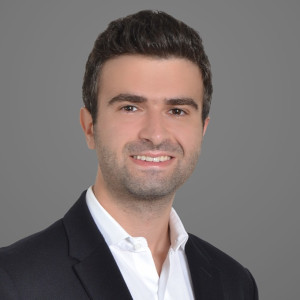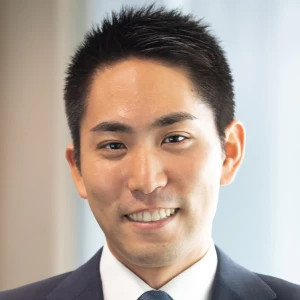I am preparing for an interview and i would like to ask for a set of questions to ask the interviewers at the end of interview . What is the purpose of these kind of questions ? what are the qualities they would look for from candidates ?
What questions to ask the interviewers at the end of the interview ?


The more you connect with the interviewer, the higher your chances of passing to the next round . If you’ve gathered enough information about them, the industry they focus on or the projects they do, ask them a personalized question . Many people love talking about their own experiences and careers, and the more they do, the more
you should express interest . You can do that by nodding your head and asking follow-up questions .
A few examples of such questions would be:
• What was your best project so far, and why?
• Looking back at your consulting career, what did you enjoy the most vs .
the least?
• Do you think of consulting as a long-term career or is there another
industry or field that interests you?
• Why did you join this company?
• Why did you become an interviewer?
However, if you sense that the interviewer isn’t comfortable sharing his/her own experiences (they’re giving short answers and don’t appear engaged), switch to more company and industry-related questions .
A few examples of such questions would be:
• How big and active is the financial services vertical in your company?
• Does the company provide training programs in key skills such as
modeling or problem-solving?
• What are the different career tracks we can follow in our consulting
career?
Typically, a combination of personalized and company/industry level questions works best .

Based on my personal experiences with recruiting, here is how I think about questions at the end of an interview (for what it's worth):
- They are mainly a filler for the last few minutes so that the interview can somewhat fade out rather than have a hard stop
- It doesn't provide real upside for the candidate but has downside
- A “good” question won't make up for potential deficits already observed during the case or personal fit portions of the interview
- A “bad” question can disqualify a candidate if the interviewer is already on the fence about whether to let that person pass
- Try to avoid high and wide questions that are super generic - make them more specific to demonstrate your own understanding of the context
- Tailor your questions to the role of the interviewer (e.g. don't bother a partner with tactical topics that any HR recruiter could answer - meet them at the strategic or leadership related level)
- Whatever questions you come up with, make sure that they are concise and to the point so you don't end up rambling

Hi there,
The goal is two-fold: 1) Ask questions you genuinely want the answer to (remember, you're interviewing them too) 2) Connect with the interviewer and demonstrate personability/capability.
I love questions that are tailored. As in, they refer to the interviewer's background, a theme of the case, experiences at the firm etc.
For example, if the case is about a car manufacturer buying an AV startup (e.g. GM buying Cruise), I might ask at the end “Overall, do you think the legacy car manufacturers will be able to beat out the Teslas of the world? If so, do you think the partnership model, the do-it-yourself model or the M&A model will be most successful?"

My best advice on this is: ask questions that a first year consultant would ask, not an interview candidate. The Q&A at the end is your last chance to shine and leave an impression. You want them to leave the interview thinking: “I can see this candidate working at X and I would be keen to staff/mentor them”. For example, try asking, “when you're making a staffing decision amongst a list of interested consultants, what are the things that are most important for you?", etc.

Hello,
You should use the opportunity to ask questions at the end of an interview as a way to learn more about the work, and build a connection with your interviewer. Some promising areas for questions could be the following:
- Their work (e.g., typical work day, what are they working on right now, most interesting project, exciting developments in the industry they work in)
- The office/practice you are applying to, if they work there as well (e.g., what is the dynamic like, what do they enjoy about being part of this office/practice)
- General questions about consulting life (e.g., how to succeed as a new consultant)
A good rule of thumb is not to ask any questions that HR could answer for you (e.g., how does staffing work, how do promotions happen).

Hey there,
This part is not evaluated and should rather be used to ask questions that you are actually interested in and you gain from knowing more about. Do not think about impressing the interviewer!
Ask about, for instance:
- Work / travel situation pre vs post COVID
- Growth trajectory of the firm
- Favorite project
- Journey within the firm
- Training opportunities once hired
Cheers,
Florian

How do you know this is the right job for you?
This is a potentially defining moment in your career. You are going to commit a few years to this job. Yet do you know all you need to know in order to make an informed decision? Interviewing is a two-way street.
How do you make sure that you start with the right foot, if you are accepted?
These are basically the topics you must address. I know people mention that you need to ask questions. But it's not a “check the box” thing. Its about signaling to the interviewer that you want the job, that you want something that “fits” your own needs, and that you are motivated to be successful.
But better than just focusing on signaling is to actually understand (and use) the wisdom behind these suggestions.

Some options:
- Mobility (How does cross office staffing work?, etc.)
- Interviewer background (What where the main challenges shifting from XX to XX?, What made you choose firm X over firm Y?, etc.)
- Projects (I enjoy industry X, how will I be able to ensure I work on industry X?)














